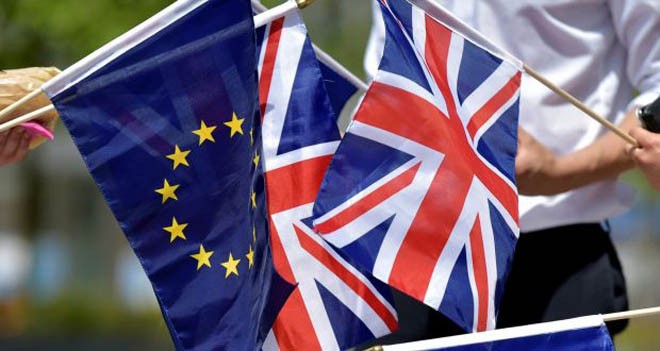

Britain’s exit from the European Union has come as a shock to many -- mostly to a large number of people in Britain. No one should be under any illusions regarding the magnitude of this decision. It will, most likely, change not just policies but also lives of millions of citizens and their future.
In many ways, the result of the referendum is a tragedy. However, my claim is that focusing on it as a tragedy alone will amount to abdicating our larger responsibilities of changing the relevant discourse. No doubt, Brexit is a tragedy and let’s first engage with that. The model of the modern day nation-state has fuelled many prejudices and passions. Just like any ideal that demands a collective and draws boundaries around the collective, nationalism has caused immense violence. This violence combined with other prejudices in thought has devastated Europe (as well as other parts of the world) multiple times in the first half of the 20th century.
The idea of the European Union was nothing less than remarkable for that continent. And, decade after decade, it achieved prosperity and became more inclusive. Of course there have been controversies about who gets membership and when but, in the larger scheme of things, the idea has facilitated a deeply connected continent.
Therefore, Brexit’s focus on nationalism and re-drawing boundaries, to ensure they are narrower, is a tragedy for the ideals of the EU.
The discourse post-referendum reveals at least two important trends: shock at the result (especially of those who supported the Remain campaign) and, second, ridiculing of people, followed by listing of alleged factors that supposedly motivated those who voted for Brexit. While the first reaction is understandable, the second must be resisted -- and this resistance will also correct the imbalance that caused shock.
It has been easy for people across the world to label the Leave supporters as stupid -- or worse, racists and xenophobes. No doubt that some people in any election, or platform affording a choice, will vote out of prejudices. While simply branding a large percentage of an entire society as xenophobic might be the easy answer, it can hardly be the correct one.
People like their clans since it brings them support using which they interact with the world. These clans also facilitate jobs, social mobility. And anyone who interferes with that is likely to get a reaction. For the intellectual elite to assume that xenophobia and racism define concerns related to jobs, education, healthcare, law and order etc. is itself rather ignorant. Not just because it arguably gets the reasons wrong for a large number of people voting a particular way, but it also reveals a shocking failure to engage with discourse to correct xenophobia.
Prejudices are deemed rational by those who hold them. Me calling someone a racist or xenophobe or any other derogatory term (in itself killing nuance in the process) is not going to change that person’s views or inspire them to correct course. So, anyone saying that the opposition is driven by racists or red-necks is part of the problem -- stereotyping and generalising because that is easy, makes you feel good that you have it figured out.
But is that the correct approach? No. It is flat out wrong. The reason prejudices are deemed rational by those who hold them is often some kind of fear of the "other". If these fears are stoked, xenophobia grows -- not because everyone buying into them is a racist but because people genuinely care about what affects their lives.
Now the only way to deal with this is to engage with the fear, instead of calling the opposition fear-mongers. One approach could be agreeing with people that it is perfectly rational for them to be worried about what affects their lives -- and then sell it to them that the fear does not make sense. Furthermore, show them economic, political and social benefits (in a way that directly affects their personal lives) of the opposition to fear.
Deep divisions and lack of effective communication strategies caused this vote to come out the way it did. The idea of continuing a union lost because most of whom who opposed it were termed bigoted and closed-minded. This entrenches divisions. And continuing this post-referendum is not going to help matters. As I said above, I concede that some may vote out of pure prejudice but a population that has a strong history of multi-culturalism cannot abandon it and turn racist. The grassroots related issues have always mattered and will matter to people. Often those who sell fear will use that to their advantage. It is about time that the liberals learn from this.
Branding others backward may make us feel good (although it just shows inherent limitations of our own worldview) but we have to keep coming back to the basic question. And there is only one basic question: how do we make this work and bridge the divide/eliminate the fear. If my idea of bridging divides is engaging in name-calling then while my social media feed will be colourful, I should be rejected by any thinking political movement aimed at creating a better tomorrow.
Those we oppose often tempt us to think like them. If our opposition creates binaries, we are lured into them too. If they brand us, we brand them too. But we are playing into their hands.
In life, and in political campaigns, goals are achieved by playing to our strengths. No one should forget that.